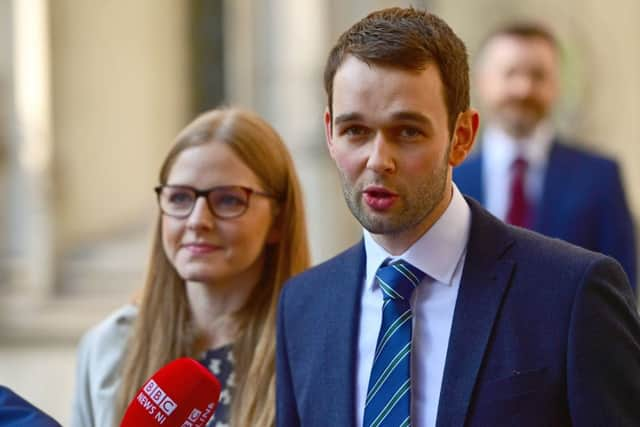Baker in ‘gay cake’ row will not seek legal costs
and live on Freeview channel 276
Ashers, a bakery in Belfast, Northern Ireland, was judged in 2015 to have broken the law after it was sued by the Equality Commission for Northern Ireland, sparking a “gay cake” row.
The bakery, run by a Christian family, later won a Supreme Court case in October 2018 to have the decision overturned.
Advertisement
Hide AdAdvertisement
Hide AdIts owners, Daniel and Amy McArthur, have now decided they will not pursue their legal costs.


Colin Hart, director of The Christian Institute, which funded the company’s legal challenge, said: “Following consultation between Ashers, their lawyers and ourselves, it has been decided that Ashers will not be pursuing the legal costs of defending the case.”
He added: “This complex case involved significant issues of wider public interest, including balancing the requirements of discrimination law and human rights.
“It has strong parallels with a case we supported in 2013 where the Christians lost.
Advertisement
Hide AdAdvertisement
Hide Ad“In that case we argued that each side should pay their own costs because of the wider public importance of the case and because both sides were supported by third parties.
“In the end that is what the Supreme Court ordered.”
The McArthurs had declined to make the £36.50 cake because it conflicted with their religious beliefs.
Belfast County Court initially ruled it broke political, religious and sexual orientation discrimination laws.
The Court of Appeal in Belfast then upheld the decision before it was overturned by the Supreme Court.
Advertisement
Hide AdAdvertisement
Hide AdMr Hart added: “The case was always going to cost money to defend.
“Even if you win you never expect to get all your costs back and you may get nothing.
“The costs orders against Ashers in the lower courts were limited to several hundred pounds in each case, so even if the Supreme Court were persuaded to grant costs, the award could have been similarly limited.”